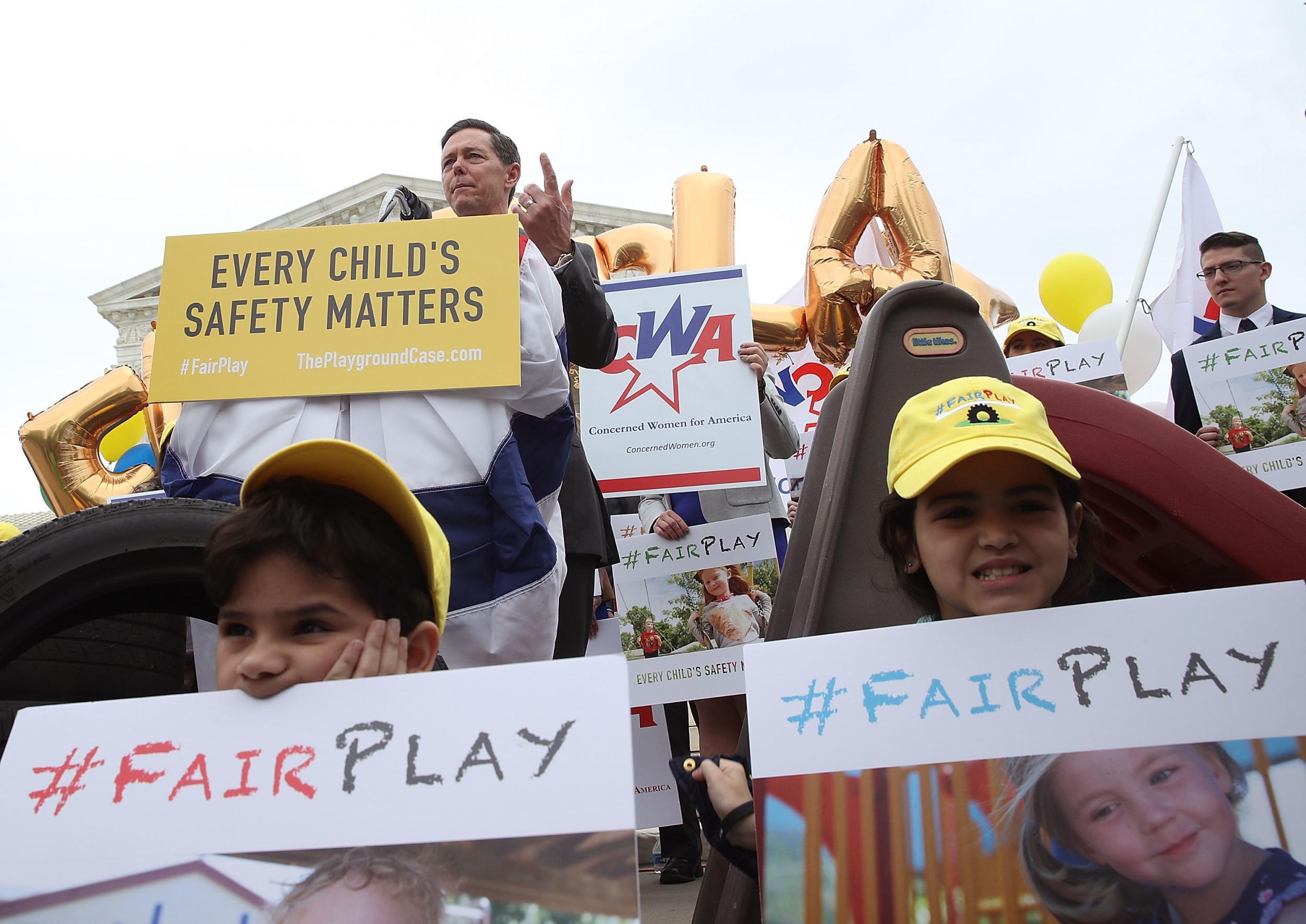Supreme Court sides with church in landmark decision on state funding for religious organisations
Two dissenting justices claim the decision 'weakens' the separation of church and state in the US

Your support helps us to tell the story
From reproductive rights to climate change to Big Tech, The Independent is on the ground when the story is developing. Whether it's investigating the financials of Elon Musk's pro-Trump PAC or producing our latest documentary, 'The A Word', which shines a light on the American women fighting for reproductive rights, we know how important it is to parse out the facts from the messaging.
At such a critical moment in US history, we need reporters on the ground. Your donation allows us to keep sending journalists to speak to both sides of the story.
The Independent is trusted by Americans across the entire political spectrum. And unlike many other quality news outlets, we choose not to lock Americans out of our reporting and analysis with paywalls. We believe quality journalism should be available to everyone, paid for by those who can afford it.
Your support makes all the difference.The US Supreme Court has ruled in favour of a Missouri church seeking state funding in a case that tests the boundaries of separation between church and state.
The case concerns Trinity Lutheran Church in Columbia, Missouri, which applied for a grant from the Department of Natural Resources to help renovate their preschool's playground. The state rejected the church's application, citing a strict policy against funding programmes controlled by a religious entity.
The Supreme Court ruled 7-2 against the state, writing that it may not deny the church a public benefit because of its religious status. In its policies against religious favouritism, the Court found, the state came dangerously close to preventing the free exercise of religion.
"This Court has repeatedly confirmed that denying a generally available benefit solely on account of religious identity imposes a penalty on the free exercise of religion," Chief Justice John Roberts wrote in the majority decision.
Justices Sonia Sotomayor and Ruth Bader Ginsberg dissented, arguing that the decision weakens the separation between church and state.
Justice Sotomayor claimed the ruling "dismantles a core protection for religious freedom" and ignores a history of separating state funding from religious causes.
"The Court today blinds itself to the outcome this history requires and leads us instead to a place where separation of church and state is a constitutional slogan, not a constitutional commitment," she wrote.
The Trinity Lutheran Church first sued the state of Missouri in 2012, after the Department of Natural Resources removed them from competition for 14 Scrap Tire Programme grants. The church had ranked fifth out of 44 applicants.
A district court dismissed the church's suit, claiming the Free Exercise clause does not prevent states from withholding benefits – such as playground restoration grants – on account of religion. The Supreme Court overturned that ruling on Monday.
The decision could have cascading effects on the approximately 35 other states that also bar public money from funding religious institutions. These so-called "Blaine Amendments," which prevent money from the public treasury from going to any religious group or teacher, seek to prevent the state from showing favouritism to any one religion.
The court also decided on Monday to rule on another religious liberty case, this time concerning the wedding cake of a same-sex couple in Colorado. The court will consider the right of private parties – in this case, a wedding cake baker – to deny services to same-sex couples on religious grounds.
Join our commenting forum
Join thought-provoking conversations, follow other Independent readers and see their replies
Comments